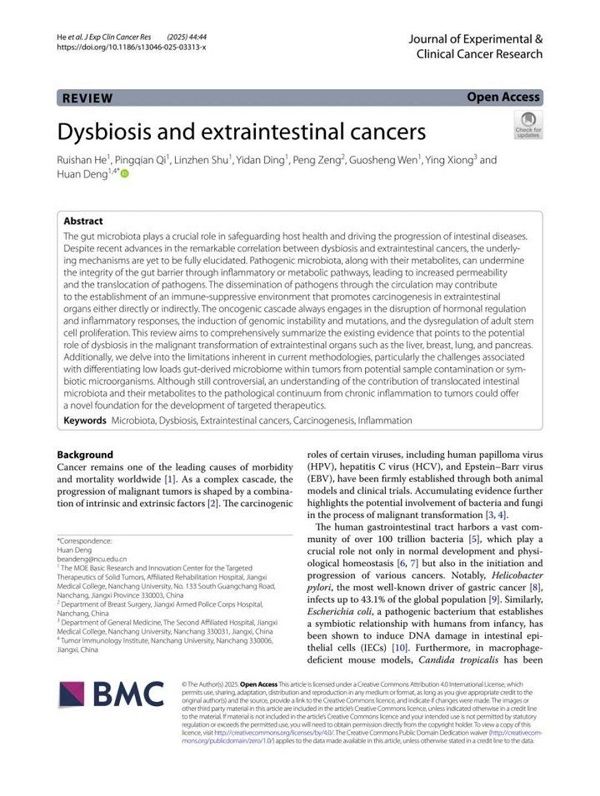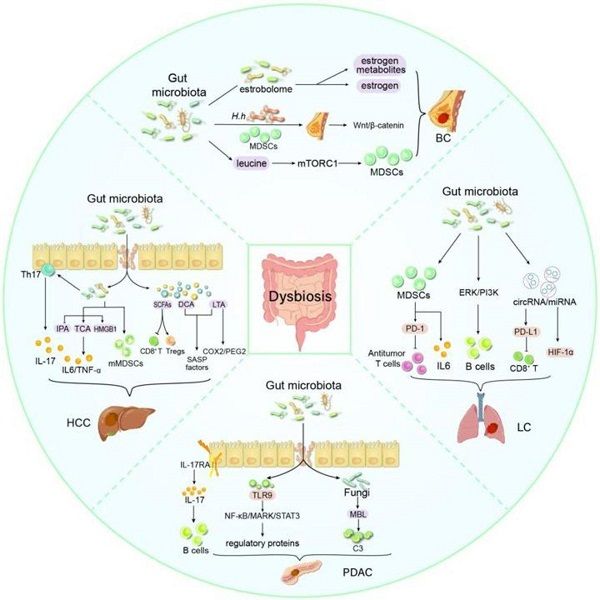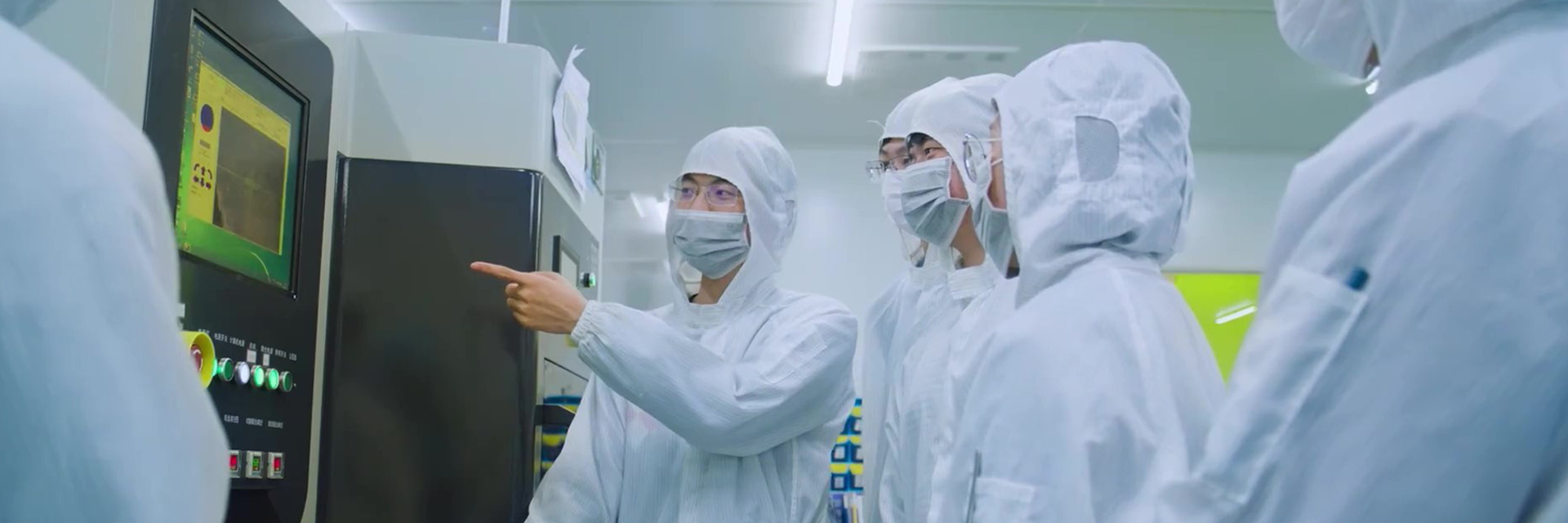It was reported that (by the Fourth Affiliated Hospital of NCU) on February 7, a review titled “Dysbiosis and Extraintestinal Cancers” by the research team led by Deng Huan, Vice President of the Fourth Affiliated Hospital of Nanchang University (NCU), was published online in Journal of Experimental & Clinical Cancer Research (JECCR, CAS Q1,TOP Journal, IF: 11.4), the official journal of the Association for International Promotion & Study in Tumors (APSIT). He Ruishan, a member of the “Party Building + Young Talents Training Program”, served as the first author, while the MOE Basic Research and Innovation Center for the Targeted Therapeutics of Solid Tumors and the Affiliated Rehabilitation Hospital of NCU were listed as the primary corresponding affiliations.

The gut microbiota plays a crucial role in safeguarding host health and driving the progression of intestinal diseases. Despite recent advances in the remarkable correlation between dysbiosis and extraintestinal cancers, the underlying mechanisms are yet to be fully elucidated. The paper reviews the research results, controversial issues and future directions of the research group and other researchers in this field in recent years. Pathogenic microbiota, along with their metabolites, can undermine the integrity of the gut barrier through inflammatory or metabolic pathways, leading to increased permeability and the translocation of pathogens and their metabolites. After entering extraintestinal organ tissues (breast, liver, pancreas, lungs, etc.), they reshape the tumor microenvironment through interactions with immune cells, nerves and stromal cells, promote abnormal proliferation and differentiation of parenchymal cells, and ultimately lead to the occurrence and progression of tumors. However, controversies persist regarding the definition of “normal microbiota”, detection methods for low-abundance microbes, and their specific mechanisms of action and these topics have been identified as critical for future research. The team creatively employed the traditional Chinese cultural concept of “round outside and square inside” to systematically delineate how pathogens breach the intestinal barrier, disseminate via the circulatory system to distant organs, and directly or indirectly promote carcinogenesis in extraintestinal organs through multifaceted mechanisms (Figure 2).

Deng Huan, Chief Physician, is a doctoral supervisor in NCU, and a postdoctoral researcher at Columbia University (USA). He is a high-level talent (Category C) in Jiangxi Province, a provincial and ministerial level talent, the leader of the provincial Education Union’s Master Workshop, one of the young and middle-aged experts recognized for outstanding contributions to healthcare in Jiangxi Province and a member selected in the “Hundred Talents Navigation Project” supported by the Provincial Organization Department and Jiangxi Association for Science and Technology. Currently serving as a Vice President of the Rehabilitation College/Affiliated Rehabilitation Hospital of NCU, he is also a backbone member of the MOE Basic Research and Innovation Center for the Targeted Therapeutics of Solid Tumors, Director of NCU Tumor Immunology Institute, Standing Committee Member of Jiangxi Pathological Society and Vice Chairman of its Youth Study Groups, and Managing Director of Jiangxi Society for Cell Biology. His research focuses on the role of the immune system in the tumor microenvironment (TME) of gastrointestinal tracts. He has served as the Principal Investigator (PI) for five research projects funded by the National Natural Science Foundation of China (NSFC) and one Science and Technology Innovation Outstanding Young Talent Training Program of Jiangxi Province. As for his research achievements, he has published more than 30 research papers in academic journals such as Cell Stem Cell (2 papers, IF: 23.9, CAS Q1, TOP), Cancer Discovery (IF: 28.2, CAS Q1, TOP), Journal of Hematology & Oncology (IF: 28.5, CAS Q1, TOP), Cancer Immunology Research (IF: 10.1, CAS Q1, TOP), and Journal of Experimental & Clinical Cancer Research (IF: 11.4, CAS Q1, TOP).
Editors: Song Zhihao, Qiu Xiaoyi, Xu Hang, Tu Jinfeng




